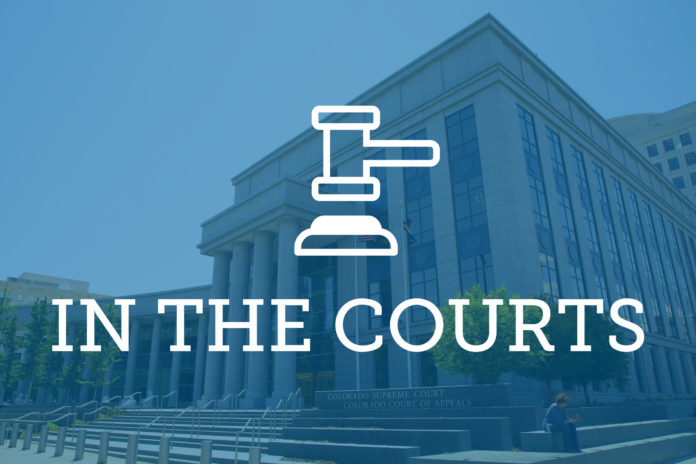
Editor’s Note: Law Week Colorado edits court opinion summaries for style and, when necessary, length.
The Colorado Supreme Court en banc unanimously made a rule absolute involving mediation in criminal cases.
Prosecutors brought four felony cases against James Justice. According to court records, when Justice was on bond and contemplating the prosecutor’s global plea offer related to the first three cases, he was arrested in the fourth case. After charges were filed in that case, prosecutors put forward a modified and less favorable global plea offer.
Justice rejected the modified offer and his family hired a private counsel to represent him in one of the cases, while a deputy public defender remained counsel of record for the other three.
Prosecutors refused to bring forward a more lenient global offer, according to court records, and Justice’s private counsel filed a motion to seek compulsory mediation for all four cases. The deputy public defender for Justice supported the request.
Prosecutors objected to the motion and asserted participating in mediation should be left to the parties. The district court disagreed and ordered mediation. The court said it had the authority to do that and given the number of cases pending and jury trials set, it was appropriate to try mediation. The court clarified it wasn’t requiring prosecutors to extend an offer, but wanted them to make a good faith effort.
Prosecutors filed a motion to vacate the mediation order contending the order violated the separation of power doctrine in the Colorado Constitution. Prosecutors maintained it wasn’t proper for the court, which is part of the judicial branch, to interfere with their office, which is part of the executive branch. Prosecutors also argued the court had no authority to order them to participate in mediation discussions.
Justice countered that the mediation order was proper because it didn’t mandate an offer or dictate parameters of any offer prosecutors might extend. Justice also argued the order was procedural since mediation results would have to be approved by both sides.
The district court denied the motion to vacate, making multiple arguments including that a plea bargain could save extensive resources and time. The court ordered the parties to schedule mediation.
A mediator then sent an email to all counsel to confirm a date and asked each party to submit a confidential settlement statement. The mediator also asked for information such as history of prior negotiations and what the counsels perceived to be strengths and weaknesses of their cases.
Before the scheduled mediation, prosecutors filed two petitions invoking the Colorado Supreme Court’s original jurisdiction. Prosecutors filed petitions in only two cases: one involving the private counsel and one involving the public defender. According to the prosecutors, they proceeded that way because they believed the district court’s written order applied to only those two cases.
After the petitions were filed, the district court issued a mediation referral order in all four cases, which made it effective as of the date of the written order, about a month earlier. The district court found the cases were appropriate for mediation basing its authority on the Dispute Resolution Act.
The court directed each party to provide the mediator a confidential settlement statement and documents counsel believed could be useful for the mediator to understand the strengths and weaknesses of each party. Counsel were also prohibited from changing or canceling the mediation session without good cause. The court also told the parties the referral order was a court order and were subject to sanctions if they didn’t comply with it.
The Colorado Supreme Court issued a rule to show cause in response to each petition filed by the prosecutors. The high court found the district court lacked the authority to require the parties to mediate in the criminal cases, and because the mediation order arguably involved the court in the plea bargaining process, it concluded the court erred and made the rules to show cause absolute.

